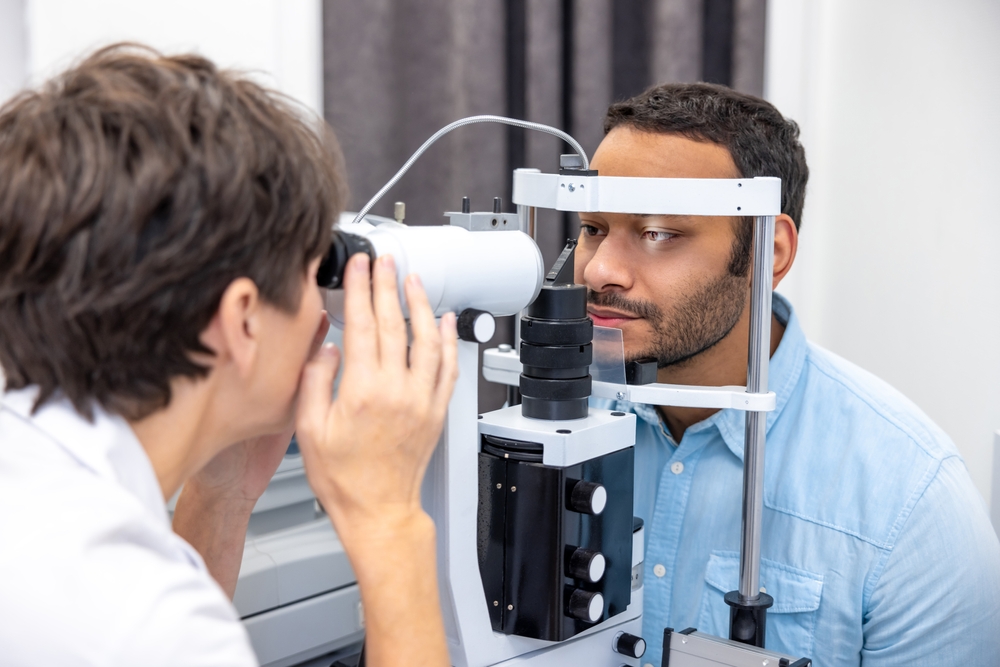The Role of Regular Eye Exams in Preventing Vision Loss
Blog:The Role of Regular Eye Exams in Preventing Vision Loss

The Role of Regular Eye Exams in Preventing Vision Loss
Maintaining clear, healthy vision is crucial to leading a fulfilling life, yet many people overlook the importance of regular eye exams. At Texas State Optical, we emphasize the proactive role eye exams play in preventing vision loss and detecting early signs of eye diseases that could impact your long-term eye health.
Why Are Regular Eye Exams Important?
Regular eye exams do more than simply update your prescription for glasses or contacts—they offer a comprehensive look at the overall health of your eyes. Many eye conditions develop slowly and without noticeable symptoms, meaning they can go undetected until irreversible damage has occurred. A routine eye exam allows your optometrist to identify issues early on, often before you even notice any changes in your vision.
Common Eye Conditions That Lead to Vision Loss
Several common eye conditions can result in vision loss if left untreated, including:
Glaucoma: Often called the "silent thief of sight," glaucoma causes damage to the optic nerve, leading to gradual vision loss. Regular eye exams can detect changes in eye pressure and optic nerve health, allowing for early intervention and management.
Macular Degeneration: This age-related condition affects the central part of the retina, leading to blurred vision or blind spots. Routine eye exams can catch early signs of macular degeneration, allowing you to take steps to slow its progression.
Diabetic Retinopathy: People with diabetes are at a higher risk for this condition, which damages the blood vessels in the retina. Early detection through regular eye exams can prevent severe vision loss in many cases.
Cataracts: While cataracts are a natural part of aging, they can cloud your vision over time. Regular exams can monitor cataract development and help determine the right time for corrective surgery.
Early Detection and Treatment
Early detection is the key to preventing vision loss. Many eye diseases are easier to manage if caught in their initial stages, and regular eye exams allow your optometrist to monitor changes in your eye health. With the help of advanced diagnostic tools, your optometrist can identify potential problems before they affect your daily life.
For example, glaucoma can be managed with medicated eye drops, laser treatments, or surgery, but once vision loss occurs, it cannot be reversed. Early diagnosis through an eye exam can help you preserve your vision by slowing the disease's progression. Similarly, early intervention in conditions like diabetic retinopathy or macular degeneration can greatly reduce the risk of significant vision loss.
How Often Should You Have an Eye Exam?
While many people should schedule an eye exam annually, your optometrist may recommend a different frequency based on your specific vision needs and health conditions. For individuals with certain risk factors, such as a family history of eye disease or chronic conditions like diabetes, more frequent exams may be necessary to protect your vision. Always follow your optometrist’s advice to determine the best schedule for your eye care.
Taking Control of Your Vision and Eye Health
Regular eye exams are a simple yet powerful way to protect your vision and overall eye health. Whether you’re experiencing symptoms or not, routine exams provide an opportunity for early detection, allowing for timely treatments that can prevent vision loss.
Schedule your eye exam with Texas State Optical to take the first step toward preserving your vision for years to come. Visit our office in Austin, Texas, or call (512) 233-6974 to book an appointment today.


